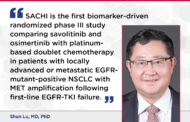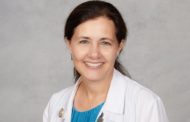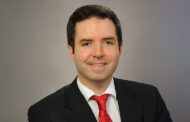
The early diagnosis of lung cancer by CT imaging in asymptomatic patients is considered one of the most effective measures to reduce lung cancer mortality.
“Patients with tumors identified in stage I have a survival rate greater than 90%, while patients with symptoms related to late diagnosis are less than 30% likely to be alive after 5 years of treatment,” said Ricardo Sales dos Santos, MD, PhD, a thoracic surgeon at Hospital Albert Einstein-SP, and professor at SENAI CIMATEC University Center-BA, Brazil.
WCLC 2022 attendees will get to hear how important screening efforts have been implemented around the globe in different populations. Dr. Sales dos Santos will be co-moderating an education session on the topic, “Current Status of Lung Cancer Screening Worldwide,” at 12:00 CEST on Sunday, August 7, in Hall C1. Presentations will be followed by a Q&A, and a recording of the session will be available on-demand via the conference’s virtual platform within 24 hours.

Current Status of Lung Cancer Screening Worldwide
- Time: 12:00 – 13:00 CEST
- Date: Sunday, August 7
- Location: Hall C1
- Moderators: Ricardo Sales dos Santos, MD, PhD; Torsten Gerriet Blum, MD; and Mónica Castro, MD
- Track: Early Detection and Screening
“The availability of specialized centers offering lung cancer screening as well as the population’s knowledge on the subject is not uniform worldwide,” Dr. Sales dos Santos said. “However, it is worth mentioning that the adherence of the population at risk is still low—less than 15%—even in countries where lung cancer screening has been approved as a public policy since 2013, as is the case in the United States.”
When at-risk individuals are screened, great progress can be made, as evidenced by a recent study from a U.S. hospital showing a shift of diagnoses from stage III and IV to stages I and II, resulting in an increase in survival of around 5% in the at-risk population.
“The results of the study are related to people diagnosed up to 2016,” Dr. Sales dos Santos said. “Therefore, with only 3 years of approval of screening as a public policy in the U.S. survival improvement similar to chemotherapy for non-small cell lung cancer has been observed for the entire study population.”
The introduction of new targeted therapies and immunotherapy to patients with early disease should bring even more substantial benefits for this population in the near future, he added.
Matthijs Oudkerk, MD, of the University Medical Center Groningen, Netherlands, will open Sunday’s session with a presentation on optimizing lung cancer screening in an international network, with a focus on Europe.
Dr. Oudkerk will be followed by three additional presentations highlighting other aspects of screening worldwide:
- “Lung Cancer Screening in Asia for Individuals Without a Smoking History,” presented by Pan-Chyr Yang, MD, PhD, of National Taiwan University
- “Argentinian National Consensus on LCS; Barriers and Challenges to Implement It in the Context of Latinoamerica LCS Situation,” presented by Iris Boyeras Navarro, MD, of Instituto de Oncología A. Roffo, Buenos Aires
- “Gender Differences in Lung Cancer Screening,” presented by Narjust Florez (Duma), MD, of Dana-Farber Cancer Institute, Boston
Dr. Sales dos Santos encourages a variety of health care providers to attend the session.
“All experts, not only doctors, but also navigation nurses and administrators must understand that the care network for the prevention and reduction of lung cancer mortality requires local efforts aligned with the most relevant international initiatives,” Dr. Sales dos Santos said. “This session provides the opportunity to strengthen networks for this purpose.”





